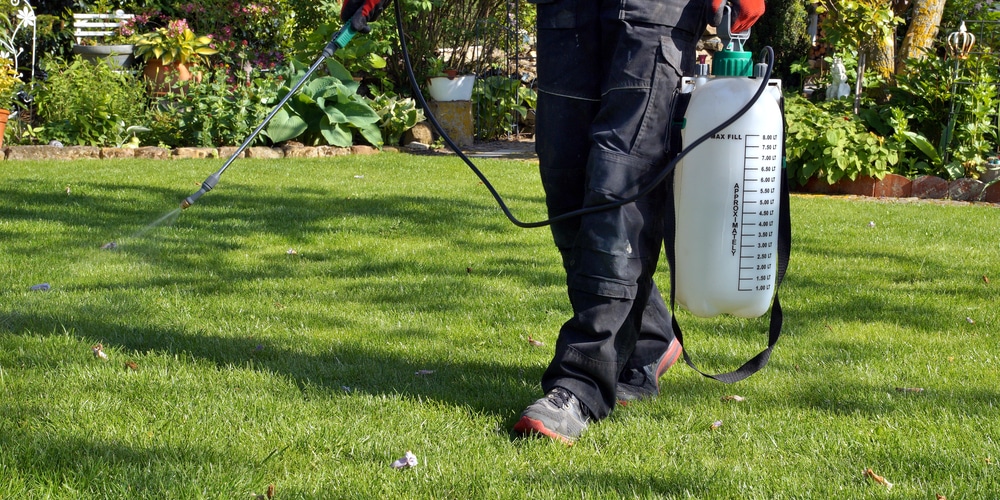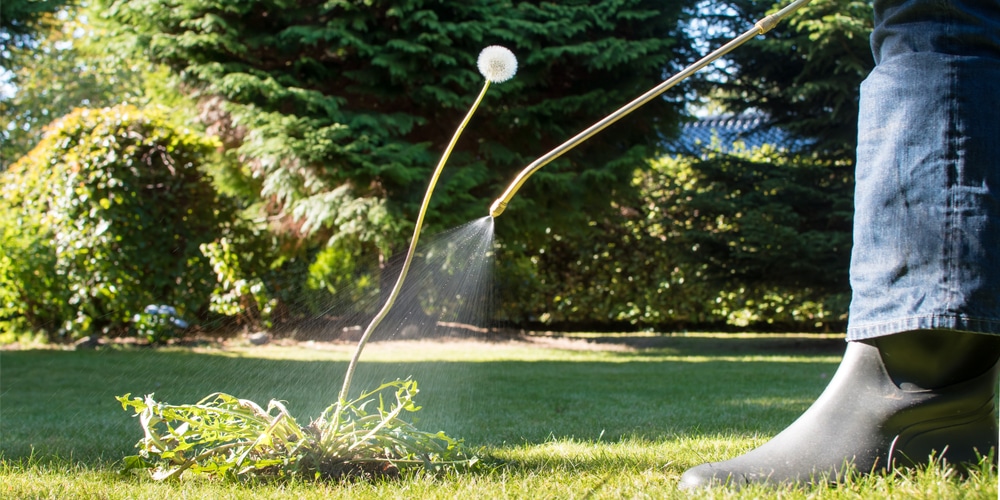Growing a lawn involves (even if you don’t like it) dealing with weeds. And they have incredible destructive power. Indeed, if you don’t keep them under control, they will deprive your turf of its beauty and health.
There are many ways to get rid of weeds. While using synthetic products shouldn’t be your first choice, sometimes, there isn’t a better option. And selecting a suitable weed killer for your garden can be daunting.
After all, there are so many products on the market that it can get overwhelming. For instance, which one should you choose between Speedzone and T-zone? If this question bothers you, don’t worry! You’ll find all the answers you need in this “speed zone vs. t zone essential guide!”
Speed Zone and T Zone: An Introduction

Before comparing the two products, it might be worth understanding these two weed killers. Here is some essential information you should have on hand.
Both are high-quality herbicides that (despite including different ingredients) have gained popularity among most gardeners. Indeed, they are effective products that, if used correctly, will rarely cause issues to your lawn. The two herbicides are highly selective, so they will only be effective with certain weed species.
And this might be both a blessing and a curse. For instance, if you are afraid of harming other plants, you can stay safe that neither Speed Zone nor T Zone will kill your green friends. However, this also means that the two herbicides won’t work with all weed species.
Mostly, they are effective at killing wild violets, ivy, clover, chickweed, speedwell, and poison oak. However, don’t forget to check on the product label you choose to purchase to avoid surprises. Still, you might be happy to learn that you can use both products on several cold and warm-season grass species.
Speed Zone vs. T Zone: Differences
But how can you know which product you should use in your garden? To begin with, you must learn which one suits your needs. Before getting a synthetic herbicide, you should know what weed species are on your lawn.
Speedzone contains several active ingredients, while T Zone’s primary compound is Triclopyr. The latter works best as a post-emergent herbicide. Also, Speedzone might take less to be effective. Plus, it seems to cover more square feet of lawn than T Zone. However, Speedzone tends to have a higher price than T Zone.
Remember to avoid applying such treatments to young sod: you should wait for it to mature before treating it. Otherwise, you might cause growth issues.
Which One Should You Pick?
The ultimate choice depends on what you are looking for from an herbicide. Since Speedzone takes less to act (you may be able to see visible results, even within a few hours), you should purchase this product if you need a fast and effective solution.
And since it is a highly selective herbicide, it won’t harm other plants. You will get better results with this product at lower temperatures (and even better when there is little wind).
On the other hand, T Zone might take a bit more to give you visible results. Still, it is an excellent solution if you don’t want to spend a fortune on a herbicide. Many gardeners prefer using T Zone since it contains Triclopyr, a powerful compound known for effectively killing most types of weeds.
We recommend you check your local weather before starting a treatment. There shouldn’t be rain days before you apply the product since it works better on dry soil. Still, you should water your lawn after the application: doing so will increase absorption and maximize the product’s effectiveness.

